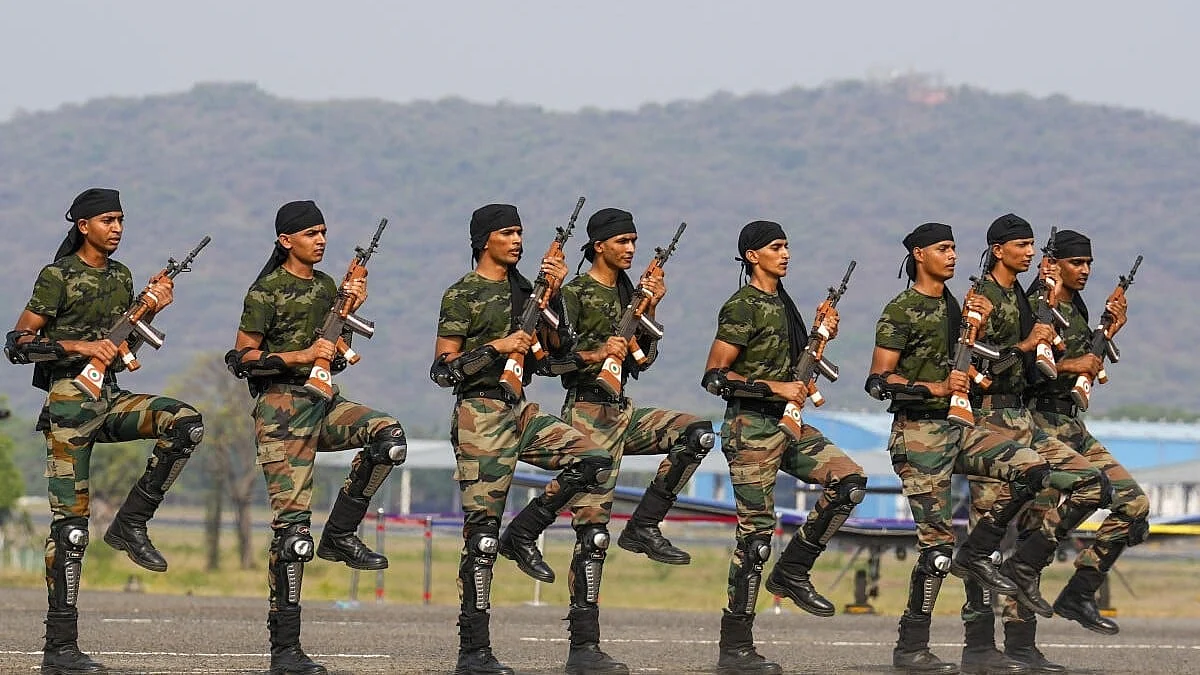Govt wants to turn soldiers into 'security guards' in colonies: Congress
Criticism follows home ministry communication urging states and UTs to ensure that private security firms hire ex-Agniveers

The Congress on Thursday launched a sharp attack on the BJP government, accusing it of betraying the dignity of India’s soldiers and reducing them to “security guards” after years of serving at the nation’s borders. The criticism followed a Union home ministry communication urging states and Union Territories to ensure that private security firms hire ex-Agniveers after they complete their short-term military tenure.
“The government wants to turn the soldiers guarding the border into ‘security guards’ standing outside a colony,” Congress spokesperson Pawan Khera said in a post on X. “This is their patriotism! This is their respect for the army!”
The home ministry’s directive, sent earlier this week, asks local administrations to help place former Agniveers in private security agencies and training institutes, citing their “discipline and experience” as valuable for such roles. The move, however, has reignited the long-running controversy surrounding the Agnipath recruitment scheme, which has drawn sharp criticism from opposition parties, veterans, and defence analysts since its rollout in June 2022.
Under Agnipath, youths between 17-and-a-half and 21 years are recruited into the armed forces for four years, after which only 25 per cent are retained for a further 15 years. The rest — called Agniveers — are discharged with a lump-sum severance package but no pension or long-term benefits. The first batch of Agniveers is due to complete service next year, meaning thousands will soon be seeking civilian jobs.
Opposition parties, including the Congress, have consistently argued that the scheme effectively turns the armed forces into a short-term employment avenue, undermining morale and the traditional ethos of lifelong military service. The latest move to link ex-Agniveers with private security employment has been cited as further evidence of inadequate planning for their post-service futures.
“The Agnipath scheme was supposed to modernise the forces, but what it has done is to create uncertainty for the young people who signed up in good faith,” Congress MP and general-secretary (communications) Jairam Ramesh said in June this year, adding that the government had “failed to think through” the consequences of the four-year tenure model.
The government, for its part, maintains that the scheme is a reform measure designed to keep the forces “youthful and tech-savvy” while reducing the long-term pension burden. In June, it tasked the Union home ministry with coordinating post-service “career progression” for Agniveers.
As part of that plan, the government announced a 10 per cent reservation for former Agniveers in constable and rifleman positions in the Central Armed Police Forces and the Assam Rifles, including the CISF and BSF. Relaxations in age limits and physical tests were also introduced to facilitate their recruitment.
Several government agencies and public sector units have announced plans to hire former Agniveers. However, the number of available positions remains limited compared to the tens of thousands who will exit the armed forces each year under the new system. Critics say this has created a mismatch between government assurances and the employment realities on the ground.
Defence experts have also questioned the wisdom of channelling trained soldiers into private security jobs, arguing that it trivialises the nature of military service. Many note that the private security industry in India is largely unregulated, offering low pay, poor job security, and minimal social protection.
Former Army chief General V.P. Malik has previously cautioned that Agniveers could face social and economic difficulties after discharge if no structured rehabilitation mechanism is in place. “The government must ensure they do not feel abandoned once their service ends,” he said in an earlier interview.
For critics of the Agnipath model, the latest home ministry circular underscores what they see as the scheme’s core flaw — the absence of a credible post-service roadmap. As one veteran wrote recently, “You cannot build a professional army on temporary contracts. Patriotism deserves permanence.”
With PTI inputs
Follow us on: Facebook, Twitter, Google News, Instagram
Join our official telegram channel (@nationalherald) and stay updated with the latest headlines
